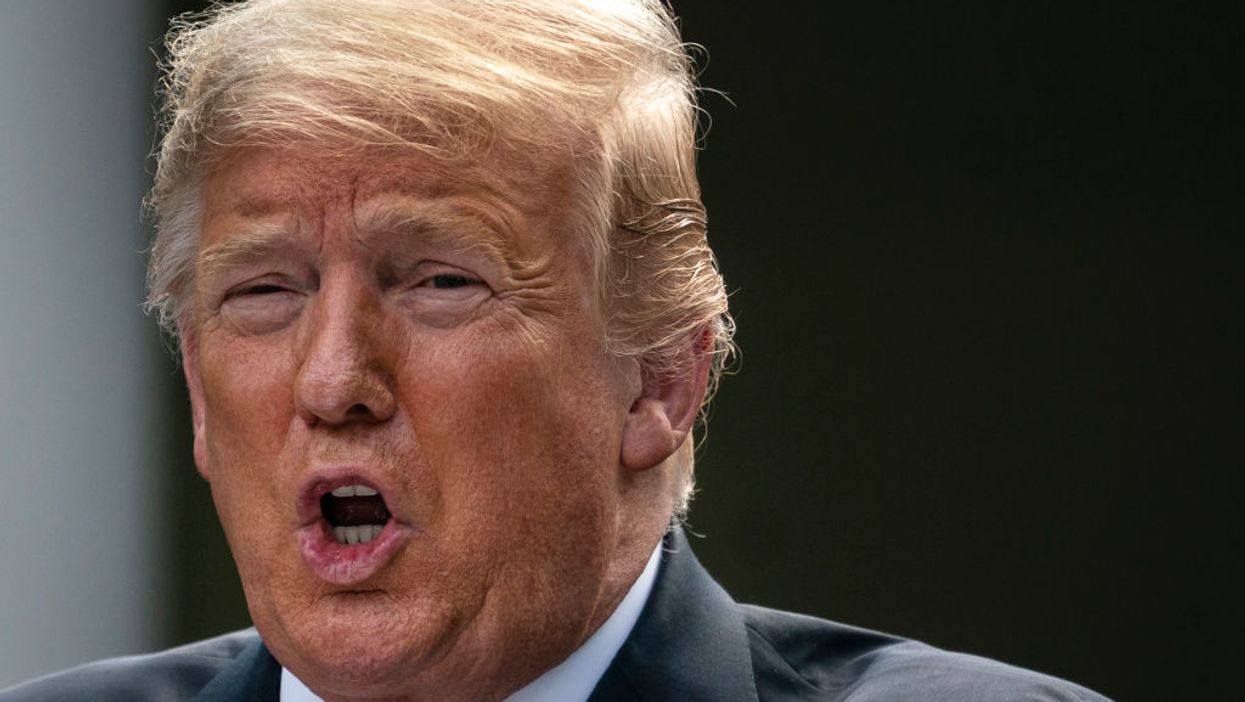President Trump is taking his crusade against voting by mail to a new level: His campaign has gone to court for the first time to combat liberalized absentee ballot rules — in Pennsylvania, a state central to his prospects for re-election.
The lawsuit, filed Monday in federal court in Pittsburgh, seeks to make the sixth most populous state abandon for November several of the ways it collected and counted mail-in ballots in the primary, alleging the procedures were both unconstitutional and against state law.
Although the Republican Party sued last month in an unsuccessful effort to limit the delivery of mail ballots to everyone in California, and is vowing to spend $20 million or more defending restrictive voting laws that Democrats are challenging in 18 states, Pennsylvania is the first place where the president's campaign has gone on litigious offense.
The "hazardous, hurried and illegal" vote-by-mail system the state instituted for this month's primaries, the lawsuit argues, gives "fraudsters an easy opportunity to engage in ballot harvesting, manipulate or destroy ballots, manufacture duplicitous votes and sow chaos."
The language emulates a barrage of tweets and public comments the president has made in recent weeks, but neither Trump nor his campaign's lawyers have offered any supporting evidence for the claim. His unfounded accusations have made the debate over easing the use of mail ballot rules during the coronavirus highly partisan, even though research shows the practice gives neither side an advantage.
The lawsuit argues that when officials in about 20 counties decided to provide drop boxes for absentee ballots, they were improperly asserting power belonging to the Legislature and violating the state and federal constitutions. State law says mail ballots must be returned directly to county elections offices. The drop boxes were installed because lawsuits have been unsuccessful in striking down a state law that says ballots must be received by the time the polls close — not just postmarked by then, as in a growing number of states.
The suit also alleges some counties violated state law by counting some mail ballots that did not arrive inside a secrecy envelope or had inappropriate writing on them.
The suit wants the drop boxes abandoned and the envelope rules enforced — and to make the state permit poll watchers to monitor vote counting (including of mailed ballots) outside the counties where they live.
The other plaintiffs are the Republican National Committee, four of the state's GOP members of Congress and a pair of Republicans who want to be poll watchers in November.
The defendants are Kathy Boockvar, the Democratic secretary of state, and all 67 counties' boards of elections.
Pennsylvania's June 2 primary was chaotic, with local media reporting tens of thousands of mail ballots arrived at election offices the week after the primary. Also, thousands more who applied to vote by mail showed up at polls to use provisional ballots because their mail-in ballots did not arrive in time. This prompted Democrtatic Gov. Tom Wolf to issue an executive order extending by a week the deadline for receiving and counting ballots in a handful of urban and suburban counties.
The head of the state Democratic Party called the suit an effort to suppress votes as a campaign tactic, noting her party far outpaced the GOP in getting voters to apply for mail-in primary ballots.
This is the first year Pennsylvanians may vote absentee without providing a specific excuse, part of an extensive rewrite of election law enacted with bipartisan support in Harrisburg last fall. The result was that more than 1.8 million voters asked for a remote ballot and six out of every seven of those people returned them in time. The numbers suggest the share of votes cast by mail statewide in November may go up by an order of magnitude from 2016, when it was just 5 percent.
Trump carried the state's 20 electoral votes last time by 44,000 votes, or less than 1 percent of the votes cast. Recent statewide polling suggests he's in trouble now in the state, which the Democratic nominee won the six previous times.
The president has continuously attacked efforts to expand voting by mail, raising unfounded claims of voter fraud. Some argue the attacks could benefit his campaign by potentially prompting Americans to decline to vote because they believe the system is corrupt.
The Pennsylvania suit is the latest in a multimillion-dollar partisan legal battle over voting rules. Recent decisions in Texas, Arizona and Iowa were a loss for voting rights advocates, while decisions in Virginia and Nevada made mail-in voting easier. The GOP lawsuit in California, which argued Democratic Gov. Gavin Newsom overstepped his bounds with his mail-in voting plans, was essentially nullified when the Legislature wrote a law doing just what he wanted.



















Trump & Hegseth gave Mark Kelly a huge 2028 gift